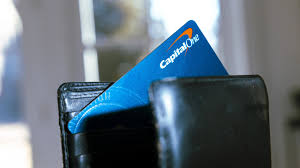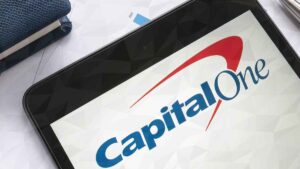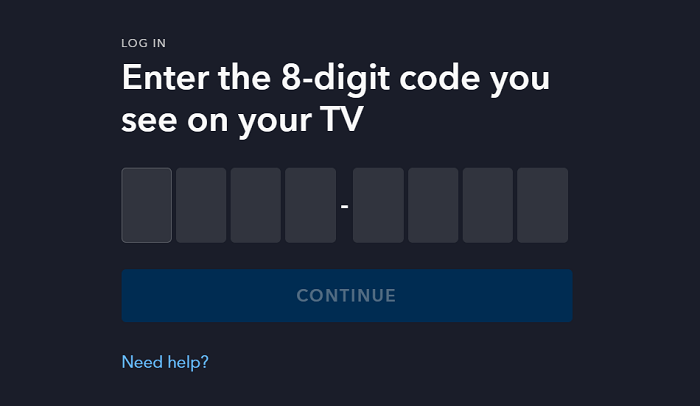Financial shocks are not borne equitably by all. For most, the recent Capital One Bank settlement offers small hope for relief through a settlement payment. If you, like many others, have been following this case and are wondering just how much you might be getting, be assured that you are not alone. Settlement eligibility, the timing of checks being mailed, and how all of this fits with your money can seem like a lot of information to swallow. With that said, we are here to help you with each step in a straightforward explanation so you know what to expect and how to collect what you are owed.
To give you a complete rundown of what the settlement was about, who is entitled to it, and the factors influencing what amount you will receive, let’s get to it. You’ll have a clear picture of what to expect from the process by the end and will go through it with peace of mind.
Table of Contents
Toggle1. Understanding the Capital One Settlement
The settlement of the lawsuit by Capital One Bank flows from some class-action-suit practices that might have harmed account holders. It is good to understand what led to the settlement in the first place to help understand the potential compensation:

- Origin of the case: There have been complaints against Capital One for many years. Finally, a class action was filed against the banking institution due to its various practices. It has allegedly caused financial damages to a large number of account holders.
- Legal milestones: Starting with preliminary claims and gathering of evidence, several years of litigation were passed. With each crossing of a legal milestone, the affected individual moved closer to having his or her voice heard and receiving compensation.
As a result of an agreement by Capital One to settle these allegations, eligible account holders can receive payments from this settlement. The resolution aims to bring closure and financial compensation to those affected.
2. Who is eligible?
Now, you are perhaps wondering whether you are entitled to some share of this settlement. It may depend on your account type, when you were a customer within the class period and other circumstances of your dealings with the bank.
- Basic Eligibility: Generally, Class Members must have been Capital One customers during the period defined in the settlement. The dates and types of accounts may be specified in the settlement document.
- Exclusion of Eligibility: Sometimes, it may be that even though you are a customer at Capital One, by the type of account or usage pattern, you might not be eligible for this. It is thus very important to go through the settlement details quite carefully to avoid misunderstanding.
If you are still unsure, then contact Capital One or the settlement administrator for your status. The eligibility tools or customer support are usually provided in such cases.
3. What does your settlement payment depend on?
Those who qualify are set for a compensation amount, which varies by many factors. This is considering that each case is normally unique, and no universal payment amount is set. The following shows what can affect the final figure:

- Account type: Depending on the account type, settlement amounts may differ. A checking account may have different ways of calculating payment as opposed to a credit card account.
- Account hold period: The time you hold an account might also be a factor. Generally speaking, the longer you are with the bank, the more money you are entitled to because you were potentially affected for a longer time.
- Impact of related practices: Sometimes, the nature of your transactions or account use can affect how much you get compensated. Where the issues have affected you more, the amount given for compensation might be higher.
Each one of these factors combined determines your specific payout. While specific numbers are not usually provided upfront, knowing the elements can help give one reasonable expectation.
4. FAQs About The Capital One Settlement
Like any large settlement filed, many questions arise. The following are a few of the most frequent questions anybody may be having with this case in simple terms:
Q: How will I be paid?
Answer: Payments are generally made by check or direct deposit, depending upon your preference, or the settlement administrator’s procedure.
Q: When will I get paid?
Answer: Timelines differ, but usually, after the close of the claims process and review of all due paperwork, a settlement award is issued. Normally, the claimant receives frequent updates from the settlement administrator.
Q: Is a settlement payment taxed?
Answer: It depends on your particular tax situation. For most, settlement money because of a personal loss is not considered income and thus is not taxable; however, you should always check with a tax professional.
Q: Will I still be able to remain a customer of Capital One after the settlement?
Answer: Yes, you may continue to bank with Capital One. There is no effect caused by receiving a Settlement payment on your current and future relationship with the bank.
5. Step-by-Step: How You Can Be Certain to Receive Your Settlement
The procedure for getting your share of the settlement may seem long, but it’s easier this way:
- Check your eligibility: Make sure you fall under the basic eligibility criteria. This could normally be done online at the settlement administrator’s website.
- Claim form: You will then be required, or you can also request your settlement by filling out a claim form. Make sure you double-check the information provided so that you are not delayed because of any imperfection.
- Upload necessary documents: At times, other documents may be required to be uploaded. This may include Proof of ownership of the subject account for a period in question.
- Keep Informed: Generally, settlement administrators send updates by email or through a specific website; just keep track of these notifications so you do not miss an important one.
- Follow-up if necessary: In case of delay and/or uncertainty, please do not hesitate to contact the administrator of the settlement. Most have customer support for claimants.
By following these steps, you avoid common mistakes and enhance your chances of receiving your payment without unnecessary delays.
6. Personal connections and stories
Whereas the details of a settlement may seem impersonal at times, the reality is that financial hardship is a very personal thing. Let’s consider the case of one account holder, Sarah, who found herself unexpectedly affected by this settlement.
Sarah, a longtime customer of Capital One, promptly ignored news of the settlement. The more she learned about the case, however, the more she realized the issues at the heart of the case had affected her financial stability at a vulnerable time. To Sarah, the knowledge that she’d be receiving a payment-even a meager one-was a modicum of justice. That sometimes financial institutions could be held accountable, and that small settlements provided a rudimentary form of relief when it was most needed.
Stories like Sarah’s reach numerous account holders, and they may feel the same way. It is beyond issues of money; it is about being acknowledged and appreciated by the firms to which we entrust our financial well-being.
7. Don’t Get Scammed
Like any high-profile settlement, it’s open season for scammers to take advantage of the situation. So here are some warning signs to look out for:

- Payment requests: No legitimate settlement administrator will ever require you to pay a fee for you to receive your payment for anything.
- Unsolicited emails or phone calls: Most scams will ask you for personal information or details on finances, sometimes impersonating either a settlement administrator or a representative of Capital One. Always check who sent it.
- Too-good-to-be-true promises: Smell a rat in anybody promising you a higher payment or “faster” processing. The proper process is standardized and does not allow for shortcuts.
Being vigilant will not only keep you safe from fraud but you will also get paid your rightful compensation hassle-free.
Final Thoughts (Capital one Bank Settlement 2024 How much Will I Get)
The Capital One Bank settlement does, in the end, provide a small but still meaningful opportunity for compensation for class members. It cannot take away the financial duress created by the issues at hand, but it is some form of recompense. For the affected, this payout can be a meaningful reminder that even financial institutions have a responsibility towards their customers.
With the above steps, you will go through the entire process with the assurance that every step taken brings you closer to the settlement amount owed to you. Whether this payment happens to help settle an overdue bill or bring someone a sense of closure, it is gratifying to know every bit counts in accountability.
Get expert tips and financial guidance at LookMyFinance.com.






